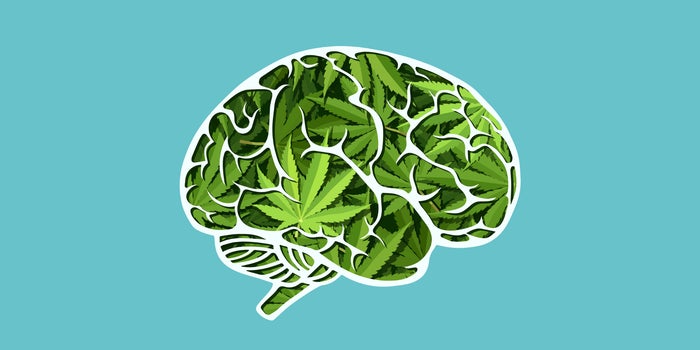You are here
Home 🌿 Recreational Marijuana News 🌿 Recent Research Indicates That Cannabis Lowering IQ Is A Myth 🌿Recent Research Indicates That Cannabis Lowering IQ Is A Myth

Studies over the years have offered that the idea marijuana lowers your IQ. This theory belongs in the file marked, “Myth.” A new study, the largest of its kind, hopes to determine once and for all what, if any, connection exists between marijuana and IQ.
The Adolescent Brain and Cognitive Development (ABCD) study, funded by the National Institutes of Health, has brought together leading researchers in adolescent development and neuroscience. The ambitious project involves more than 11,000 children in the United States. Results, however, could be years away.
As pointed out in a detailed dive into marijuana and IQ by Scientific American, researchers look forward to the study’s findings. That’s because of the debate that ensued over how researchers conducted an influential past study.
Scientific American wrote that in a “world run by evil scientists” the population would simply be split in half. Half would use marijuana, half wouldn’t. Then everyone would be given an IQ test and that would be that. Except that it wouldn’t be. Researching the issue is far more complicated.
Early studies did not factor in preexisting conditions.
People are not machines. Development of the brain and cognitive abilities, which continues into the mid-20s, involves many factors: from socioeconomic circumstances to the behavior of parents, diet, and physical activity.
It seems obvious that simply testing the IQ of one person who uses marijuana with one who does not is overly simplified. However, that’s partly what happened in a 2012 study from New Zealand that found marijuana use impacted cognitive ability over a timeframe of many years. The cohort in the study was more than 1,000.
But there were issues. In writing about the study, Leafly argued that the 2012 research in New Zealand “suffers from a really common error: correlation vs. causation.” The correlation vs. causation problem, put in simple terms, means that just because two events are correlated does not mean that one caused the other.
The oft-quoted example is that murder rates tend to rise when ice cream sales increase. But buying a double-dip French vanilla cone doesn’t turn you into a killer, nor does committing murder make you crave a pint of chocolate chip cookie dough. Correlation is so difficult to prove that some scientists instead try to prove two issues are not uncorrelated, an approach known as rejecting the null hypothesis.
In the case of marijuana and IQ levels, many other factors outside of cannabis can impact IQ. For example, some people simply had low IQs to begin with rather than had them dragged down by weed. Other factors such as growing up in an environment where education is not valued can cause lower IQs. And drugs and alcohol also have an impact.
“When epidemiologists factor binge drinking, nicotine, and other drug use into their models, marijuana’s cognitive effects evaporate,” Scientific American reported.
Using twins in studies resulted in different findings.
Another strategy to solve for causation vs. correlation issue is research involving twins. Sharing the same household, parents and DNA code eliminates many variables that impact IQ.
In a 2019 examination of data from two longitudinal twin studies, Nicholas Jackson of the University of Southern California and William Iacono of the University of Minnesota reported that researchers measured twins’ intelligence between nine and 12 years of age (before any type of drug use) and again between 17 and 20. They found that “observed declines in measured IQ may not be a direct result of marijuana exposure but rather attributable to familial factors that underlie both marijuana initiation and low intellectual attainment.”
In other words, weed didn’t lower IQ. Rather, issues such as impulsivity, excessive risk-tasking, and not valuing education predicted future substance abuse and lower IQ scores.
Scientists now hope the new study will add clarity to the issue. It will follow 11,000 children, starting at the age of 10. Each will undergo serial IQ testing and brain imaging to capture brain and IQ development before any substance abuse. They then will document the longitudinal consequences of any substance use as the age of the subject. Researchers expect meaningful results in a few years as the subjects reach their mid-teens.
420 Intel is Your Source for Marijuana News
420 Intel Canada is your leading news source for the Canadian cannabis industry. Get the latest updates on Canadian cannabis stocks and developments on how Canada continues to be a major player in the worldwide recreational and medical cannabis industry.
420 Intel Canada is the Canadian Industry news outlet that will keep you updated on how these Canadian developments in recreational and medical marijuana will impact the country and the world. Our commitment is to bring you the most important cannabis news stories from across Canada every day of the week.
Marijuana industry news is a constant endeavor with new developments each day. For marijuana news across the True North, 420 Intel Canada promises to bring you quality, Canadian, cannabis industry news.
You can get 420 Intel news delivered directly to your inbox by signing up for our daily marijuana news, ensuring you’re always kept up to date on the ever-changing cannabis industry. To stay even better informed about marijuana legalization news follow us on Twitter, Facebook and LinkedIn.




